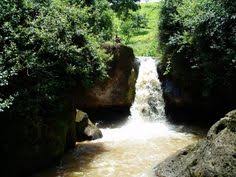The Federal Government has reaffirmed its commitment to achieving zero biodiversity loss in Nigeria by the year 2030.
The Minister of Environment, Balarabe Lawal, made this known on Wednesday during the Validation Workshop on the National Biodiversity Strategy and Action Plan (NBSAP) held in Abuja.
Lawal was represented by the Director of the Forestry Department in the ministry, Dr. Amah Moses.
According to him, the validation workshop marks a crucial milestone in aligning Nigeria’s national strategies with the Kunming-Montreal Global Biodiversity Framework.
“By 2030, all areas will be effectively managed to reduce the loss of high biodiversity zones to near zero,” he stated.
Lawal emphasized that Nigeria, blessed with rich flora and fauna, must develop a robust strategic framework to promote the protection, restoration, and sustainable use of its biodiversity resources.
He noted that biodiversity is not only essential for ecological balance but also contributes significantly to the nation’s economy, culture, and food systems.
“Biodiversity is not just about conservation; it forms the foundation of our ecosystems. It provides food, medicine, clean water, and healthy soils,” he added.
He further reiterated that the health and well-being of all Nigerians depend on a healthy environment and called for collaborative efforts to build a more resilient and ecologically sustainable nation.
“As we implement the Kunming-Montreal Global Biodiversity Framework and its ambitious goals, it’s important to recall Nigeria’s active role, alongside ECOWAS, in its development between 2020 and 2022,” he said.
Also speaking, the Director-General of the National Biosafety Management Agency (NBMA), Dr. Agnes Asagbra reiterated the agency’s commitment to biodiversity conservation and collaboration with the Ministry of Environment.
“The private sector also plays a key role, especially in biotech and agriculture-based industries, in supporting biodiversity through corporate social responsibility,” she stated.
In the same vein, the Coordinator of the UNDP Global Environment Facility Small Grants Programme (GEF SGP), Mrs. Ibironke Olubamise highlighted the programme’s long-standing support for biodiversity initiatives in Nigeria.
“Biodiversity has always been a priority. To date, we have supported between 60 and 70 biodiversity projects across the country,” she revealed.
She added that the programme has worked in nearly all national parks, supporting NGOs and local communities in all eight traditional parks.


